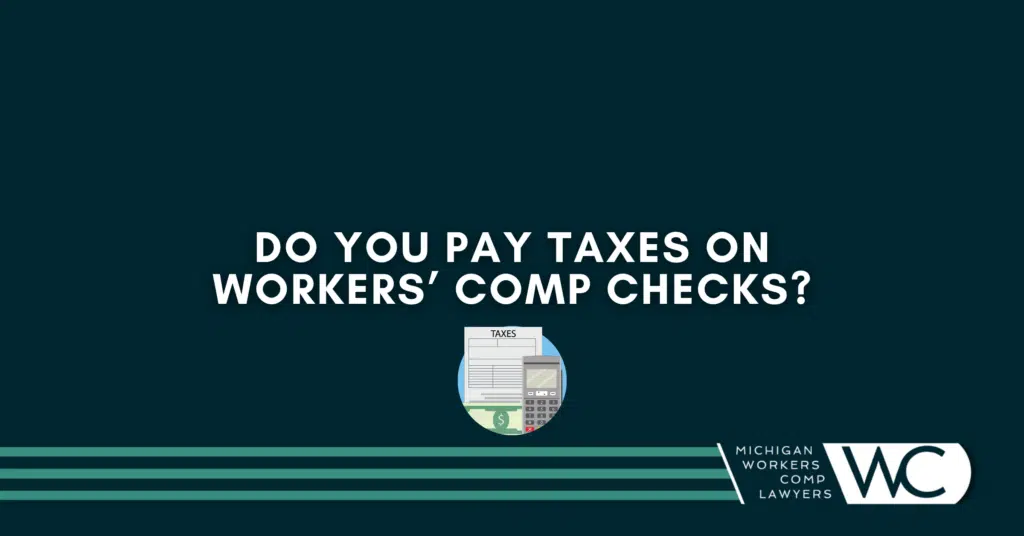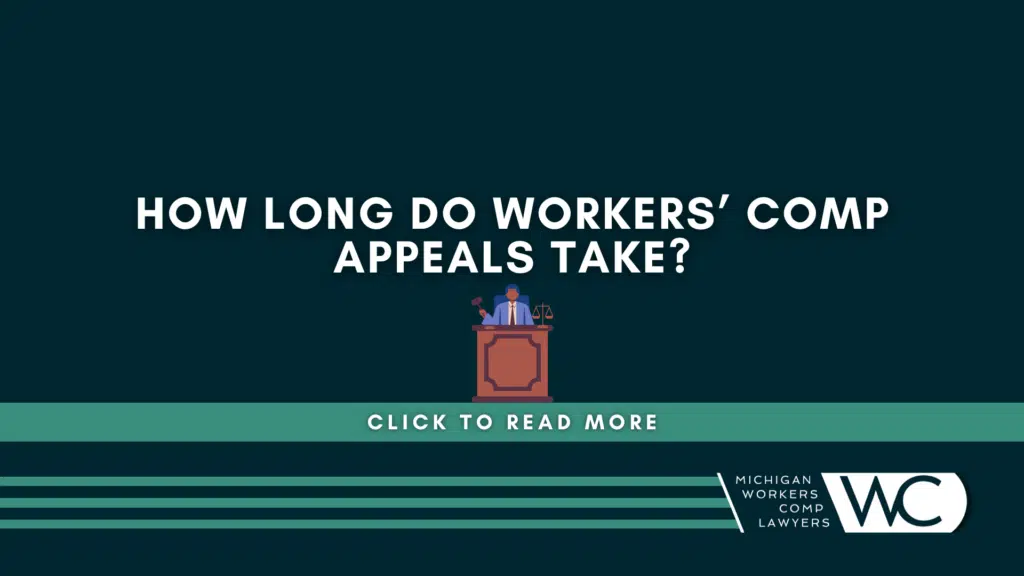
Michigan lawyer discusses whether taxes are owed on workman’s comp payments.
Monday, April 15, 2024, is Tax Day. It is the dreaded time of year when employees are scrambling to see if they owe money to the state and federal governments. We get lots of telephone calls and emails with the question: Do you pay taxes on workers’ comp checks? The answer is ‘no’ but watch out for some other potential pitfalls.
Many people live paycheck-to-paycheck and missing any time because of a workplace accident can result in a financial disaster. Michigan workman’s comp law is a safety net in the form of payments for lost wages. It pays 80% of an employee’s after-tax average weekly wage. It is tax-free money because it is already calculated on the after-tax value.
Do you pay taxes on workers’ comp checks in Michigan?
You don’t have to pay state or federal income taxes on weekly checks under workers’ comp in Michigan. However, income earned while performing actual work before or after getting hurt on-the-job is potentially taxable. This includes periods of time that are considered light duty.
Do you pay taxes on checks that are paid for a settlement in Michigan?
Disabled employees can trade workers’ comp benefits for a lump sum cash payment. Taking a settlement allows a disabled employee the freedom to do medical and vocational rehabilitation on their own terms. You don’t have to pay income taxes on a workers’ comp settlement check in Michigan.
Will I get a tax form from workman’s comp in Michigan?
There is no tax form that will be sent showing how much was paid in workers’ comp benefits from checks. Disabled employees should not expect to receive a W2 or 1099 unless they performed actual work for the employer during that calendar year.
Watch out for employers who forget to provide necessary tax documents when light duty work has been performed. A simple telephone call to the employer can save a lot of trouble with the IRS in the future.
Do payments from workman’s comp cause other tax problems?
Though you don’t have to pay taxes on workers’ comp checks in Michigan you still need to watch out for other income during the year. This includes Sickness & Accident (S&A), Extended Disability Benefits (EDB), Short-Term Disability Benefits (STD), Long-Term Disability Benefits (LTD), and retirement payments.
Some disabled employees also receive Social Security Disability Benefits (SSDI). There is an offset when workman’s comp and SSDI add up to more than a prescribed limit. Watch out because even though money is taken away from SSDI checks because of workman’s comp payments, it might still be considered taxable income.
We strongly recommend that anyone who has received workers’ comp payments, SSDI benefits, pension money, or other income consult with a tax professional.
Injured while on the job? Contact our lawyers for a free consultation
If you were injured on the job and need help with your claim or have questions about workers’ comp checks and paying taxes, call now to speak with an experienced workers’ comp lawyer, or fill out our contact form for a free consultation. There is absolutely no cost or obligation. We’re here for you.
Our workman’s comp attorneys have been exclusively helping injured workers in the state for more than 40 years. Our attorneys can help you better understand workers’ comp laws and what happens after someone has been hurt on the job. To see what our own clients have to say about the caring, compassion, and communication they received from us, you can read in their own words about their experience here on our testimonials page from clients we have helped.
Our law firm never charges a fee to evaluate a potential case. Our law firm has represented injured and disabled workers exclusively for more than 40 years. Call (844) 316-8033 for a free consultation today.
Related information:

